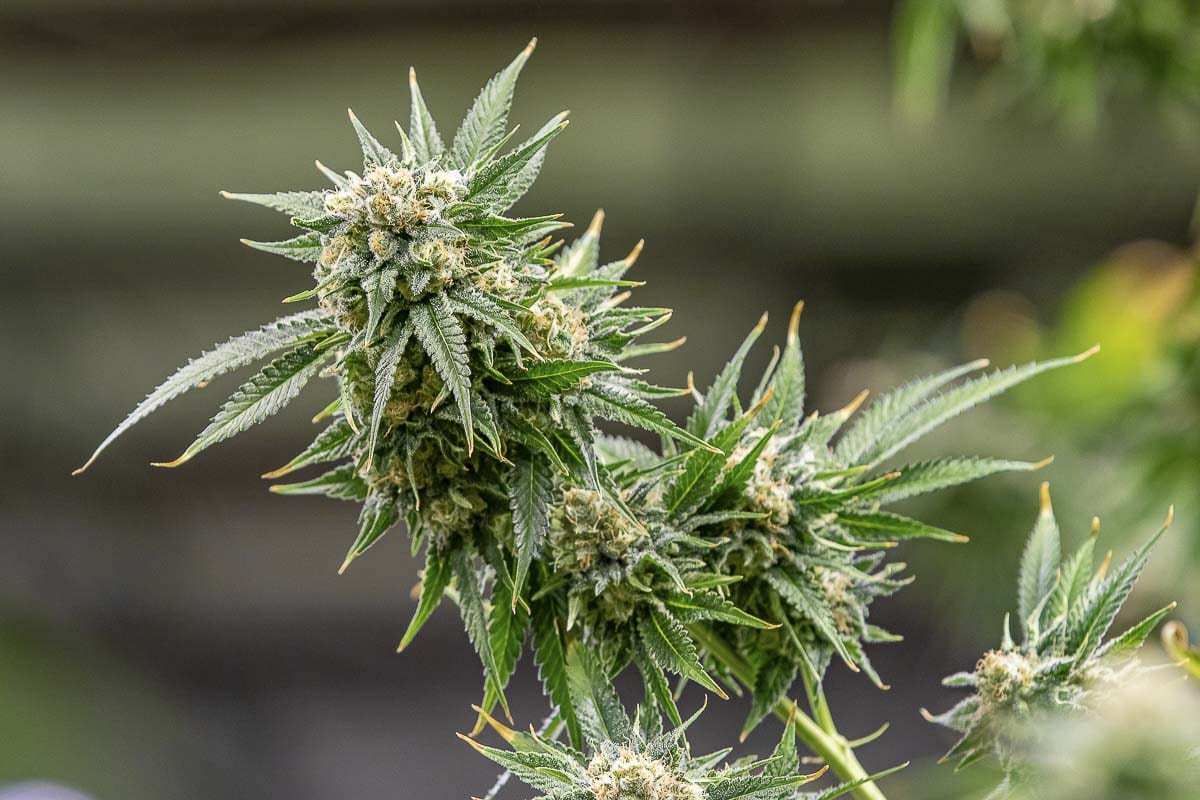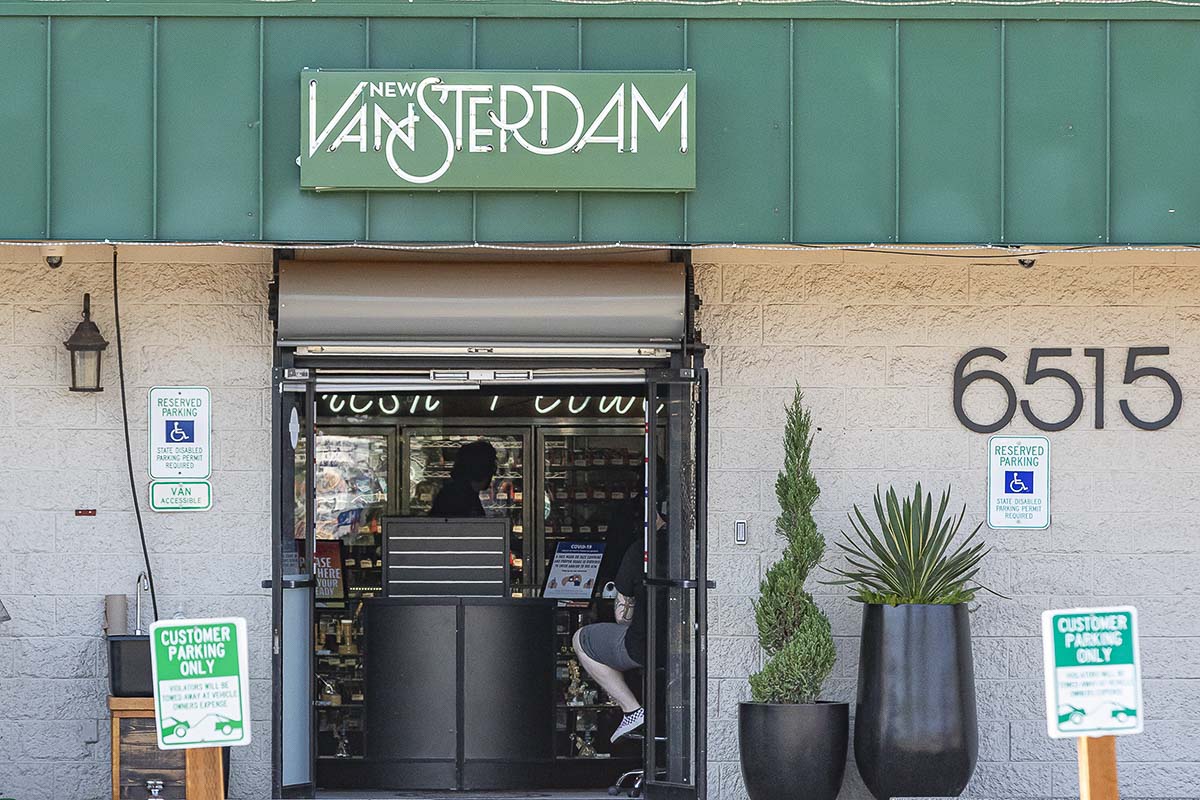City’s moratorium on marijuana shops challenged by petition; county counting names
CAMAS — In 2015, members of the Camas City Council voted 5-2 in favor of a moratorium on the growing, manufacturing, processing, and sale of marijuana in the city. Five years later, two groups are vying over the future of that decision.
Initiative 1 in Camas this election, was intended to overturn the council’s ban on cannabis and allow for the operation of the one, state-sanctioned marijuana shop in the city. The group, Camas for Cannabis Access is leading the charge in favor of that initiative, while the group Washingtonians Against Legalizing Marijuana (WAALM) is the main voice of opposition.

Camas for Cannabis Access began collecting the needed 2,377 signatures for submitting the initiative at the start of 2020. On Aug. 6, they reached their goal and submitted the petition to the council, who had the option to approve and reverse their previous decision, or decline action and forward the petition to the Clark County Auditor’s Office for verification.
The council forwarded the petition to the county, and is currently awaiting a response. City officials declined to comment on the initiative or issue at this time.
Terah Pitchford, a decade-long veteran of cannabis access advocacy is leading the proponent group, and explained the process as it currently stands. Due to an increase of close to 100 new voter registrations from the groups canvassing and work with the community, the county’s registered voter list was not up to date upon receiving the petition, she said.
“Our original goal was to try to get everything turned in, submitted and validated in time to be on the November ballot,” Pitchford said. “But largely because of the pandemic, and now also secondarily because of this issue, it looks like that timeline has passed, and when the signatures are verified, then the goal would be to be on a ballot at a later date.”
Since January, the primary argument from the point of the council and WAALM was that the city code, in this case Ordinance No. 2679, could not be overturned by an initiative. The council has been in the process of conferring with the city attorney on the issue as well, according to city staff.
Dan Duringer is the treasurer of WAALM, and has been working to use political signage and community conversation over NextDoor in opposition of the initiative.
“The city code would have to be changed to allow a marijuana shop,” Duringer said. “But [the city’s] been very quiet about it for the last month. They won’t even talk about it for about a month now. I have an idea that there’s a legal challenge going on through it all. So our organization is quite aware that this could actually get on the ballot.”
Camas for Cannabis Access’ main argument is similar to those made in many communities where the state has legalized and decriminalized weed: legalization brings regulation, and regulation reduces the illicit market.
In support of that stance, Camas for Cannabis access cites several studies conducted in states with legalization. One from the Substances Abuse and Mental Health Administration suggests that marijuana shops, which refuse to sell to minors, have caused a 10 percent drop in underage marijuana use nationally.
“It’s an indicator of a functioning system,” Pitchford said. “When cannabis is accessible in a store where it’s regulated, and where it’s quality tested, and where people are being checked for their IDs stringently, then ultimately it’s helping to keep the access away from the youth in the community.”
The group also has referred community members to Clark County specific numbers from the Washington Healthy Youth survey. The results from 2012 to 2018 show 1 to 4 percent decreases in marijuana use in middle and high schoolers in the county.

Duringer and WAALM are skeptical of such statistics, however, providing their key argument looks more at the effects of the drug on developing minds, as well as minds in general, and their stance that marijuana is still greater in health risks than benefits.
Citing studies on the negative effects of weed to the brain’s functions and memory, as well as people’s behavior, WAALM’s stance is that marijuana sales from a shop in Camas would only cause higher amounts of cannabis use and create an increased presence of the power struggle with illegal markets in the area.
Citing the American Medical Association and the American Psychiatric Association’s past statement’s that marijuana is a potentially dangerous drug that in some cases can cause psychosis, WAALM says it is motivated out of a desire for public safety.
The argument sometimes made against this thinking, Duringer said, is the double standard with alcohol; which is legal and rarely opposed, but causes over 10,000 DUI deaths each year, according to the National Highway Traffic Safety Administration. He explained he, and WAALM, see the two substances as apples and oranges, and not directly equatable.
“They expect a legal parody with alcohol,” Duringer said. “They say it’s hypocritical for Camas to be such a social place, you know with people going out and drinking and not allow people to have their marijuana. Our position on that is … marijuana is not due [legal parody] because it’s a dangerous drug. Sure, alcohol causes problems too, but marijuana is not required to increase the harms of those substances in the city.”
Camas for Cannabis Access and Pitchford are refuting this response, and have been by lobbying the City Council, with studies showing potential, expanding health benefits of marijuana in areas like opioid addiction treatment, PTSD and anxiety.
The group’s petition signatures, once verified by the county auditor, are valid for six months, Pitchford said, and the goal would be to have Initiative 1 on the ballot in 2021 or 2022.




